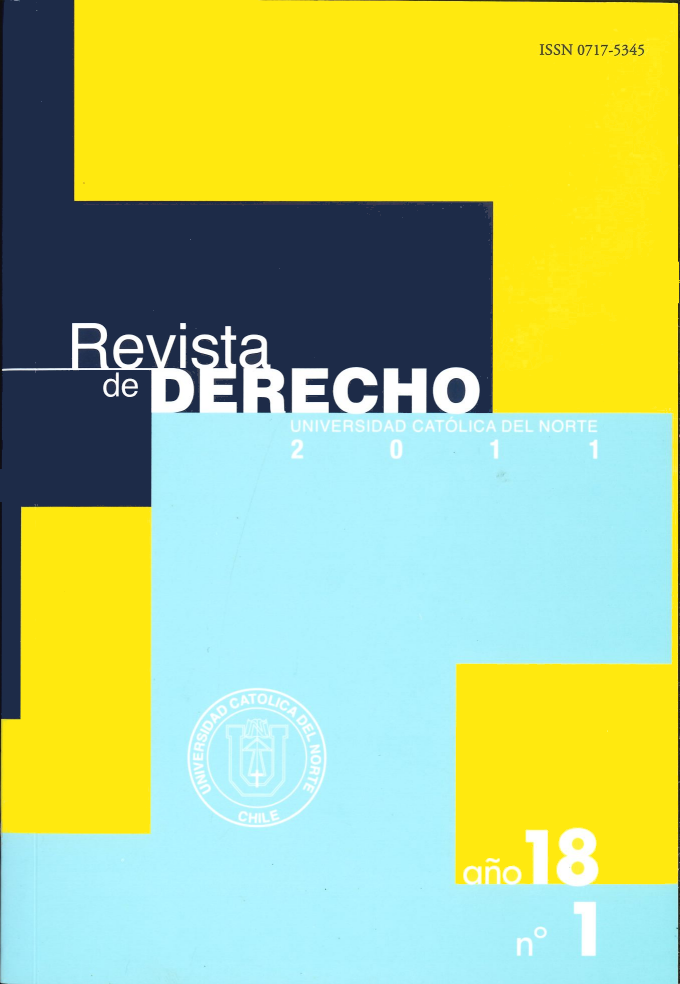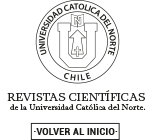Revisión crítica del criterio "interés de la justicia" como razón para no abrir una investigación o no iniciar un enjuiciamiento ante la Corte Penal Internacional
Palabras clave:
Complementariedad, interés de la justicia, Corte Penal Internacional, Fiscal, oportunidadResumen
El estándar "interés de la justicia" es clave para entender las (necesarias) facultades del Fiscal de la Corte Penal Internacional para la selección de situaciones a investigar entre las que le son remitidas y casos a perseguir cuando ya se ha autorizado la apertura de una investigación. Si bien existen ya varios trabajos sobre el punto, tienen en común que a ellos subyace la comprensión de que dicho estándar se aplicaría en supuestos en los que la contra del interés de la justicia. Esta interpretación genera varios problemas. Se propone un enfoque, basado en los criterios tradicionales de interpretación de los tratados, que entiende a la cláusula en comento como una válvula de escape en casos de excepción cuyo origen es más bien contingente y externo a la situación o caso en cuestión. Se pone de relieve cómo esta comprensión resulta más coherente con el sistema jurídico internacional en su conjunto.
Citas
ARSANJANI, Mahnoush (1999): "Reflections on the jurisdiction and trigger mechanism of the Internacional Criminal Court". En Von Hebel, Hermann; Lammers, Johan; Schukking, Jolien: Reflections on the International Criminal Court. La Haya: T.M.C. Asser Press.
BEIGBEDER, Yves (2005): International justice against impunity. Progress and New Challenges. Boston Leiden: Martinus Nijhoff Publishers.
BEHRENS, H.J. (1999): "Investigación, juicio y apelación". En Ambos, Kai / Guerrero, Julián (compiladores): El Estatuto de la Corte Penal Internacional. Bogotá: Universidad Externado de Colombia.
BENSOUDA, Fatou (2010): "Challenges related to investigation and prosecution at the International Criminal Court". En Belleli, Roberto (editor) (2010): International Criminal Justice. Surrey: Ashgate.
BERGSMO, Morten; KRUGER, Pieter (2008): "Article 53". En Triffterer; Otto: Commentary on the Rome Statute of the International Criminal Court, 2a ed. Munich: C. H. Beck Hart Nomos.
BRUBACHER, Matthew (2004): "Prosecutorial discretion within the International Criminal Court". Journal of International Criminal Justice (2).
CÁRDENAS, Claudia (2007): "La Corte Penal Internacional y su relación con las jurisdicciones nacionales: El principio de complementariedad". Revista de Magister y Doctorado en Derecho, Universidad de Chile, N° 1/2007.
CÁRDENAS, Claudia (2005). Die Zulässigkeitsprüfung vor dem Internationalen Strafgerichtshof ? Zur Auslegung des Art. 17 IStGH-Statut unter besonderer Berücksichtigung von Amnestien und Wahrheitskommissionen. Berlín: Berliner Universitätsschriften -Reihe Strafrecht 24.
CLARK, Ian (2007). International legitymacy and world society. Oxford: Oxford University Press.
CLARK, Ian (2005). Legitymacy in international society. Oxford: Oxford University Press.
FEDERATION INTERNATIONALE DES LIGUES DES DROITS DE L'HOMME (2005). Reflexions sur la notion "interets de la justice" au terme de l'article 53 du Statut de Rome. Disponible en http://www.fidh.org/IMG/pdf/cpi20062005f.pdf [Fecha de consulta: 9 de enero de 2010].
FUNK, Markus (2010). Victims rights and advocacy at the International Criminal Court Oxford: University Press.
GAJA, Giorgio (2008). "Issues of admissibility in case of self referrals". En Politi, Mauro / Gioia, Federica: The International Criminal Courts and National Jurisdictions. Adlershot: Ashgate.
GALLAVIN, Chris (2003). "Article 53 of the Rome Statute of the International Criminal Court: in the interests of justice?". King's College Law Journal (179).
GIOIA. Federica (2008). "The complementarity role of the International Criminal Court; are they any time limits?" En Politi, Mauro / Gioia, Federica: The International Criminal Courts and National Jurisdictions. Adlershot: Ashgate.
GLASER, Juluis (1883). Handbuch des Strafprozesses, primer tomo. Leipzig: Duncker & Humblot.
GOLDSTONE, Richard J. / FRITZ, Nicole (2000). "'In the interests of justice' and independent referral: The ICC prosecutor 's unprecedent powers". Leiden Journal of International Law (13).
GÓMEZ COLOMER, José Luis (2003). "La investigación del crimen en el proceso penal ante la Corte Penal Internacional". En Gómez Colomer, José Luis / González Cusac, José Luis, Cardona Llorens, Jorge (coordinadores): La Corte Penal Internacional. Valencia: Tirant lo Blanch.
GUARIGLIA, Fabricio (1999). "Investigation and prosecution". En Triffterer; Otto (editor): Commentary on the Rome Statute of the International Criminal Court. Baden-Baden: Nomos.
HAYNER, Priscilla (2002). Unspeakable truths. Nueva York, Londres: Routledge.
HERZOG, Felix (2008). "¿No a la persecución penal de dictadores ancianos? Acerca de la función de la persecución penal de la criminalidad estatal". Política Criminal N° 5, D1, pp. 1-9. Disponible en: www.politicacriminal.cl [fecha de consulta: 9 de febrero de 2011].
KITTICHAISAREE, Kriangsag (2001). International Criminal Law. Oxford: Oxford University Press.
KRITZ, Neil J. (1996). "Coming to Terms with Atrocities: A Review of Accountability Mechanisms for Mass Violations of Human Rights". Law and Contemporary Problems (59).
KRITZ, Neil J. (ed.) (1995). Transitional Justice. How Emerging Democracies Reckon with Former Regimes, tomo I. Washington: United States Institute of Peace Press.
LEE, Roy (1999). The International Criminal Court. The making of the Rome Statute. The Hague, London, Boston: Kluwer Law International.
McADAMS, A. James (ed.) (1997). Transitional Justice and the Rule of Law in the New Democracies. Notre Dame London: University of Notre Dame Press.
McGOLDRICK, Dominic / ROWE, Peter / DONNELLY, Eric (2004). The Permanent International Criminal Court. Legal and policy issues. Oxford and Portland (Oregon), Hart Publishing.
MEYER, Lukas H. (editor) (2009). Legitimacy, justice and public international law. Cambridge: Cambridge University Press.
MURPHY, Colleen (2010). "Political reconciliation and international criminal trials". En May, Larry / Hoskins, Zachary: International criminal law and philosophy. Cambridge: Cambridge University Press.
OLÁSOLO, Héctor (2003). Corte Penal Internacional ¿Dónde investigar? Valencia: Tirant lo Blanch.
RAZESBERGER, Florian (2006). The International Criminal Court. Francfort del Meno: Peter Lang.
ROBINSON, Darryl (2006). "Serving the interests of justice: Amnesties, truth commissions and the International Criminal Court". En Harrington, Joanna et al.: Bringing power to justice. Québec, McGill-Queen's University Press.
ROHT-ARRIAZA, Naomi (1995). "Punishment, redress, and pardon: theoretical and psychological approaches". En Roht-Arriaza (editor): Impunity and Human Rights in International Law and Practice. New York oxford: Oxford University Press.
ROTBERG, Robert / THOMPSON, Dennis (editores) (2000). Truth versus justice. Princeton: Princeton University Press.
ROXIN, Claus (1998). Strafverfahrensrecht. Munich: Beck.
SCHABAS; William (2010). The International Criminal Court: a commentary on the Rome Statute. Oxford: Oxford University Press.
SCHARF, Michael (1999): "The amnesty exception on the he jurisdiction of the International Criminal Court". Cornell International Law Journal (32).
STAHN, Carsten (2005). "Complementarity, Amnesties and alternative forms of justice: some interpretative guidelines for the International Criminal Court". Journal of International Criminal Justice (3).
STIGEN, Jo (2008). The relationship between the International Criminal Court and National Jurisdictions: the principle of complementarity. Leiden Boston: Martinus Nijhoff Publishers.
STRUETT, Michael J. (2009). "The politics of discursive legitimacy: understanding the dynamics and implications of prosecutorial discretion at the International Criminal Court". En Roach, Steven C.: Governance, order and the International Criminal Court. Oxford: Oxford University Press), pp. 107 y ss.
STRUETT, Michael J. (2008). The Politics of constructing the International Criminal Court. New York: Palgrave Macmillan.
SUNGA, Lyal S. (2009). "Ten principles for reconciling truth commissions and criminal prosecutios". En Doria, José / Gasser, Hans-Peter / Bassiouni, M. Cherif: The legal regime of the International Criminal Court. Leiden. Boston: Martinus Nijhoff Publishers.
TEITEL, Ruti G. (2000). Transitional Justice. Oxford: Oxford University Press.
TOMUSCHAT, Christian (1998). "Das Statut von Rom fur den Internationalen Strafgerichtshof". Die Friedenswarte.
VALINA, Marta (2010). "Interpreting complementarity and Interests of justice in the presence of restorative-based alternative forms of justice". En Stahn, Carsten/Van den Herik, Larissa: Future perspectives of international criminal justice. La Haya: T.M.C. Asser Press.
VILLA-VICENCIO, Charles (2000). "Restorative justice: dealing with the past differently". En Villa-Vicencio, Charles/Verwoerd, Wilhelm (editores): Looking back reaching forward. Reflections on the Truth and Reconciliation Commission of South Africa. Cape Town, London: University of Cape Town Press Zed.
WEBB, Philippa (2005). "The ICC Prosecutor's Discretion not to prosecute in the 'interests of justice'". Criminal Law Quarterly (50).
WEI, Wu (2005). Die Rolle des Anklägers eines Internationales Strafgerichtshofs. Fráncfort del Meno: Peter Lang.
WERLE, Gerhard (2005). Tratado de derecho penal internacional. Valencia: Tirant lo Blanch.
WOLFRUM, Rüdeger / RÖBEN, Volker (editores) (2008): Legitimacy in international law. Berlín, Heidelberg, Nueva York: Springer.
WOUTERS, Jan / VERHOEVEN, Sten / DEMEYER, Bruno (2009). "The International Criminal Court's Office of the Prosecutor". En Doria, José et al. The legal regime of the International Criminal Law. Leiden, Boston: Martinus Nijhoff Publishers.
YAV KATSHUNG, Joseph (2010): The International Criminal Courts and Truth Commissions: two sides of the same coin? Lexington: autoedición, pp. 38 y ss.
ZAHAR, Alexander / SLUITER, Göran (2008). International criminal law. Oxford: Oxford University Press.
NORMAS JURIDÍCAS CITADAS
Pacto Internacional de Derechos Civiles y Políticos, adoptado y abierto a la firma, ratificación y adhesión por la Asamblea General en su resolución 2200 A (XXI), de 16 de diciembre de 1966 [fecha de consulta: 9 de enero de 2011]. Disponible en http://www2.ohchr.org/spanish/law/ccpr.htm
Convención Interamericana sobre Derechos Humanos (Pacto de San José de Costa Rica) suscrita en la Conferencia especializada interamericana sobre derechos humanos, San José, Costa Rica 7 al 22 de noviembre de 1969 [fecha de consulta: 9 de enero de 2011]. Disponible en http://www.oas.org/juridico/spanish/tratados/b-32.html
Convenio Europeo de los Derechos Humanos, suscrito en Roma el 4 de noviembre de 1950. Convenio para la Protección de los Derechos Humanos y de las Libertades Fundamentales revisado de conformidad con los Protocolos n° 11 y 14 completado por el Protocolo adicional y los Protocolos n° 4, 6, 7, 12 y 13 [fecha de consulta: 9 de enero de 2011]. Disponible en http://www.echr.coe.int/NR/rdonlyres/1101E77A-C8E1-493F-809D-800CBD20E595/0/ESP_CONV.pdf
Convención de Viena sobre el Derecho de los Tratados Convención de Viena sobre el derecho de los tratados. Viena, 23 de mayo de 1969 [fecha de consulta: 9 de enero de 2011]. Disponible en http://untreaty.un.org/ilc/texts/instruments/english/conventions/1_1_1969.pdf
Estatuto de Roma de la Corte Penal Internacional [fecha de consulta: 9 de enero de 2011]. Disponible en http://www.icc-cpi.int/Menus/ICC/Legal+Texts+and+Tools/
Reglamento de la Corte Penal Internacional [fecha de consulta: 9 de enero de 2011]. Disponible en http://www.icc-cpi.int/Menus/ICC/Legal+Texts+and+Tools/
Regulations of the Office of the Prosecutor, Corte Penal Internacional [fecha de consulta: 9 de enero de 2010]. Disponible en http://www.icc-cpi.int/Menus/ICC/Legal+Texts+and+Tools/
Reglas de Procedimiento y Prueba de la Corte Penal Internacional [Fecha de consulta: 9 de enero de 2010]. Disponible en http://www.icc-cpi.int/Menus/ICC/Legal+Texts+and+Tools/
Código de conducta profesional de los abogados en la Corte Penal Internacional [fecha de consulta: 9 de enero de 2010]. Disponible en http://www.icc-cpi.int/Menus/ICC/Legal+Texts+and+Tools/
Estatuto del Tribunal Penal Internacional para la ex Yugoslavia [fecha de consulta: 9 de enero de 2011]. Disponible en http://www.icty.org/sections/LegalLibrary
Reglas de Procedimiento y Prueba del Tribunal Penal Internacional para la ex Yugoslavia [fecha de consulta: 9 de enero de 2011]. Disponible en http://www.icty.org/sections/LegalLibrary
Estatuto del Tribunal Penal Internacional para Ruanda [fecha de consulta: 9 de enero de 2011]. Disponible en http://www.unictr.org/tabid/94/default.aspx
Estatuto de la Corte Especial para Sierra Leona [fecha de consulta: 9 de enero de 2011]. Disponible en http://www.sc-sl.org/LinkClick.aspx?fileticket=uClnd1MJeEw%3d&tabid=176
JURISPRUDENCIA CITADA
Corte Penal Internacional
Situation in Darfur, Sudan (2009): Corte Penal Internacional 4 de febrero de 2009 (Decision on the application for leave to appeal the decision on application under rule 103) párrafo 29.
Prosecutor v. Omar Hassan Ahmad Al Bashir (2009): Corte Penal Internacional 1 de septiembre de 2009 (Decision ordering the parties to submit their observations on the applications for Victims' participation in the proceedings)
Prosecutor v. Kony et al. (2008): Corte Penal Internacional 17 de septiembre de 2008 (Decision on legal representation, appointment of counsel of defence [...]).
Prosecutor v. Germain Katanga (2008): Corte Penal Internacional, 10 de marzo de 2008 (Decision on the joinder of the Cases against Germain Katanga and Mathieu Ngudjolo Chui);
Situation in the Democratic Republic of Congo (2006): Corte Penal Internacional 10 de febrero de 2006 (decision on the Prosecutor's application for warrants of arrest, article 58).
Situation in the Central African Republic (2006): Corte Penal Internacional 30 de noviembre de 2006 (decision requesting information on the status of the preliminary examination of the situation in the Central African Republic).
Tribunal Penal Internacional para la ex Yugoslavia
Prosecutor v. Prlic et al. (2004): Tribunal Penal Internacional para la ex Yugoslavia, 24 de noviembre de 2004 (decision on appeal by Bruno Stojic against Trial Chamber's decision on request for appointment of counsel);
Prosecutor v. Milosevic (2004): Tribunal Penal Internacional para la ex Yugoslavia, 7 de diciembre de 2004 (decision on assigned counsel's motion for withdrawal);
Prosecutor v. Hadzihasanovic et al. (2004): Tribunal Penal Internacional para la ex Yugoslavia, 11 de marzo de 2004 (decision on the prosecution motion for receiving testimony by video-conference link);
Prosecutor v. Seselj (2003): Tribunal Penal Internacional para la ex Yugoslavia, 9 de mayo de 2003 (decision on presecution's motion for order appointing counsel to assist Vojislav Seselj with his defence);
Prosecutor v. Musliu (2003): Tribunal Penal Internacional para la ex Yugoslavia, 21 de octubre de 2003 (decision on assignment of defence counsel);
Prosecutor v. Jelisic (2000): Tribunal Penal Internacional para la ex Yugoslavia, 15 de noviembre de 2000 (decision on request to admit additional evidence);
Prosecutor v. Sljivancanin (2003): Tribunal Penal Internacional para la ex Yugoslavia, 20 de agosto de 2001 (decision on assignment of defence counsel);
Prosecutor v. Kupreskic et al. (2001): Tribunal Penal Internacional para la ex Yugoslavia, 11 de abril de 2001 (decision on the admission of additional evidence following hearing of 30 march 2001);
Prosecutor v. Blaojevic et al. (2001): Tribunal Penal Internacional para la ex Yugoslavia, 3 de julio de 2003 (decision on independent counsel for Vidoje Blagojevic's motion to instruct the registrar to appoint new lead and co-counsel);
Prosecutor v. Simic et al. (2001): Tribunal Penal Internacional para la ex Yugoslavia, 24 de enero de 2001 (order separating proceedings and scheduling order).
Prosecutor v. Tadic (1998): Tribunal Penal Internacional para la ex Yugoslavia, 15 de octubre de 1998 (decision on appellants motion for the extension of the time-limit and admission of additional evidence).
Publicado
Cómo citar
Número
Sección
Aquellos autores/as que tengan publicaciones con esta revista, aceptan los términos siguientes:
- Los autores/as conservarán sus derechos de autor y garantizarán a la revista el derecho de primera publicación de su obra, el cuál estará simultáneamente sujeto a la Licencia de reconocimiento de Creative Commons que permite a terceros compartir la obra siempre que se indique su autor y su primera publicación esta revista.
- Los autores/as podrán adoptar otros acuerdos de licencia no exclusiva de distribución de la versión de la obra publicada (p. ej.: depositarla en un archivo telemático institucional o publicarla en un volumen monográfico) siempre que se indique la publicación inicial en esta revista.
- Se permite y recomienda a los autores/as difundir su obra a través de Internet (p. ej.: en archivos telemáticos institucionales o en su página web) antes y durante el proceso de envío, lo cual puede producir intercambios interesantes y aumentar las citas de la obra publicada. (Véase El efecto del acceso abierto)





_(1).png)











